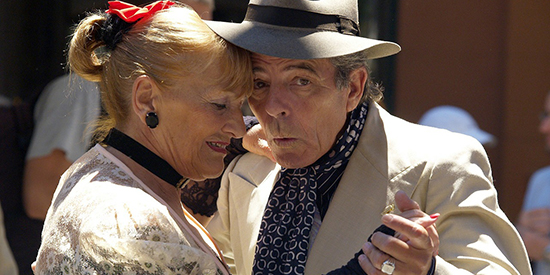Deakin academics shine spotlight on Australia's neglected 'pretirees'
Media releaseTwo Deakin University academics are calling for a national shift in awareness on 'pretirees' as they approach a crucial fork in the road that can lead to either healthy ageing or chronic disease threats.
Professor Julie Pasco and Professor Michael Berk believe targeted health promotion interventions can help boost health outcomes for current and future pretirees as they enter their elderly years, improving their quality of life and reducing the financial toll on health, disability and social services budgets.
"We need to nudge their health behaviours to prevent their health from deteriorating so they can cross into the 'elderly' band able to continue contributing to society in better health," Professor Pasco said.
"Early intervention and prevention are so important."
The academics, from the School of Medicine's IMPACT Strategic Research Centre, also believe it is time to recognise the rich life experience, economic potential and youthful mindset that people in their late 50s and 60s contribute to today's Australia.
"We need to shine a light on this pretiree demographic, sandwiched between work and the retiree stage of life, because they're engaged with life and they’re at that crucial stage where they should be focussed on maintaining their muscle mass and strength, their mobility and their cognition so they reach their elderly years in a healthy state," Professor Pasco said.
Professor Pasco, who heads IMPACT's Epi-Centre for Healthy Ageing, said the growing pretiree demographic was largely overlooked when members of the Silent Generation filled its ranks. With Baby Boomers now taking over, today's pretirees are shaping as more active, financially secure and vocal than their predecessors.
"They're not so silent and they have a much younger attitude compared to previous generations in this age bracket," Professor Pasco said. "It's an exciting time of life for them."
Population figures reveal that the number of Australians aged 65 years and over rose from under one million to 3.4 million in 50 years from 1964. Life expectancy has also climbed.
Professor Pasco, who is researching the participation rates of older people in sporting events, also called for a societal change in attitude to pretirees embracing physical fitness.
"While the whole Middle Aged Men In Lycra comments may be tongue in cheek, there's no reason why pretirees exercising should be unfashionable," she said.
"We should be supporting and applauding these people. Let's celebrate the youthful outlook of today's pretirees, because they are a vibrant sector of our community."

